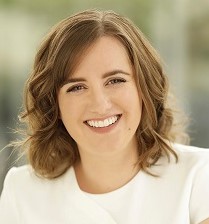Being a parent is an incredibly rewarding – but also incredibly stressful – role.
It is a 24/7, 365 day a year position that lasts at least 18 years and then carries on beyond as your child continues to live their life as an adult.
Perhaps the biggest challenge is that there is no training manual that comes with being a parent, rather, it’s a matter of trial and error. This can often cause a significant amount of stress for parents as they seek to be the “perfect parent”.
The Perfect Parent?
Looking at what a perfect parent is, we have to ask ourselves – do they really exist?
Is it possible to deliver a successful intervention at every fault that occurs in your child’s life? Is it possible to successfully, without error, disagreements or misconceptions, create a perfect relationship with your child, free from any experience of negative emotion? Is it possible to succeed at all these tasks and do it all with a positive attitude, never experiencing frustration or anger towards your child?
When reflecting on these questions we quickly realise that the answer is “no” … a “perfect” parent does not exist.
What parents are expected to be though, is simply, “good enough”. “Good enough” to provide their offspring with a healthy, positive relationship with each parent, as well as boundaries provided in a healthy, respectful way, free from abuse and harm.
Parenting Strategies
This leads to many questions; specifically, where do we learn our parenting strategies from, and where can we learn more?
Our individual parenting strategies are learned from our own families of origin. The parenting style we were subjected to as a child provides us with our greatest source of information. Have you ever made that statement as a teenager: “I’m never going to parent like that!”, only to find yourself doing the same thing as you parent your own children?!
In other cases, people learn how NOT to parent from their families.
Either way, families are our most likely source of how we learn to parent our own children.
What is Triple P?
Developed by Professor Matt Sanders, Triple P (short for Positive Parenting Program) is an evidence-based parenting program that works with parents on specific goals for their family.
Strategies are divided into promoting positive development with your child, and managing misbehaviour.
For example, building a positive relationship with your child would be discussed when covering promoting positive development, while managing misbehaviour would include the introduction of logical consequences, and the use of time out.
An Example of How Triple P Parenting Strategies Work
So, let’s look at a common parenting struggle and how this would be reflected on by Triple P: tantrums.
Every parent has encountered a tantrum, which can last anywhere from 30 seconds to an hour or more.
The classic question parents ask themselves is: “How do I manage this behaviour?”.
The first place to start might just be thinking, why do children have tantrums (bear in mind sometimes there may be no obvious reason)?
This may require the parent to record what is happening just before the tantrum occurs, as well as a reflection on how the tantrum is normally managed. When we figure out why tantrums occur, it can help us work towards preventing tantrums occurring in the first place. For example, to avoid saying “No” too much the parent could put away things that are not to be played with.
It is only after prevention strategies are explored that a Triple P practitioner will start to provide strategies for managing the tantrum. These can then be applied and differences can be recorded with how the child reacts to the intervention.
Success with Triple P Parenting Strategies
Triple P has been around for more than 35 years and an extensive amount of research has occurred across many countries.
Results have generally indicated that use of the program shows an improvement in the behaviour of the children, and as well as in the parent-child relationship.
Additionally, parental wellbeing and confidence showed positive results, while there was a decrease in stress levels and depression, from implementing Triple P parenting strategies.
 Author: Sharyn Jones, B Psych (Hons).
Author: Sharyn Jones, B Psych (Hons).
Sharyn Jones is a Brisbane psychologist with 10 years of experience working with adults, adolescents, children and their parents. She is a trained practitioner in Triple P parenting strategies, and enjoys helping parents to gain new skills to create a better family life.
To make an appointment try Online Booking. Alternatively, you can call Vision Psychology Brisbane on (07) 3088 5422.
References:
